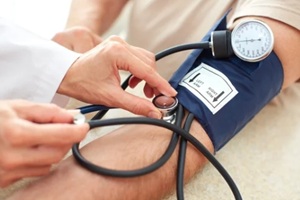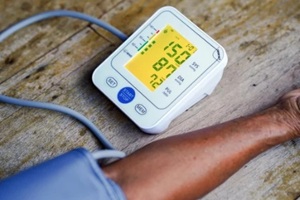 The mind-body connection has surprising implications for blood pressure management. For better or worse, your emotional health significantly influences your cardiovascular system. Being aware of this intricate relationship is the first step to learning to control your emotions to improve heart health.
The mind-body connection has surprising implications for blood pressure management. For better or worse, your emotional health significantly influences your cardiovascular system. Being aware of this intricate relationship is the first step to learning to control your emotions to improve heart health.
The Stress Response and Blood Pressure Management
Stressful situations send your body into fight-or-flight mode, flooding your system with hormones such as adrenaline and cortisol. This stress response temporarily spikes your blood pressure and heart rate to prepare you for action.
Occasional stress is normal, even healthy. However, chronic stress keeps your body in a continuous state of high alert. Over time, this can cause persistent hypertension and extra strain on your cardiac system. It’s similar to revving a car engine for too long while staying still.
There are several ways you can minimize how stress affects you:
- Practice relaxation techniques such as yoga, meditation, and deep breathing, which can lower stress hormone levels. Don’t underestimate the simple power of deep breaths.
- Exercise regularly to burn off extra stress chemicals and nervous energy. Even light physical activity has cardiovascular benefits.
- Evaluate your schedule and commitments. Saying no or asking others for help with obligations can reduce pressure.
- Keep perspective on challenges in your life. Reframing thoughts in a more constructive way can diffuse emotional intensity.
Anxiety, Anger, and Cardiovascular Strain
For people prone to anxiety or anger, these intense emotions can also spike blood pressure to concerning levels.
During an anxiety attack, a rush of adrenaline causes rapid heartbeat, breathing trouble, and a squeezing, painful tightness in the chest. Blood pressure may reach dangerously high levels in mere moments.
Similarly, angry outbursts unleash a flood of stress hormones, constrict blood vessels, and quicken the pulse. Studies associate the two hours after an episode of rage with a higher risk of adverse cardiovascular events.
Finding healthy emotional outlets is essential. For example, various creative pursuits, exercise, or even writing in a journal can help diffuse inner turmoil rather than letting it brew. For some, speaking with a professional counselor also teaches valuable coping techniques.
Addressing the root causes of anger through introspection or therapy gets to the heart of the matter. You can’t manage your emotions well if you don’t know what is causing them.
Depression and Emotional Health
Depression is a complex disorder that also goes hand-in-hand with the stress response. People with clinical depression often have elevated cortisol levels, potentially leading to high blood pressure over time.
 Compounding the issue, depression often sparks unhealthy habits, such as smoking, drinking excessive alcohol, lack of exercise, and emotional eating. All these behaviors negatively impact cardiovascular health.
Compounding the issue, depression often sparks unhealthy habits, such as smoking, drinking excessive alcohol, lack of exercise, and emotional eating. All these behaviors negatively impact cardiovascular health.
Research shows that treating the whole person is important for mental well-being and physical health. No matter if it’s through medication, therapy, lifestyle changes, or often a combination, managing depression can translate to measurable heart health gains.
Cultivating Positivity and Life Balance
The antidote to stressful emotions is to build more positivity into your days. People prone to happiness and optimism tend to have lower blood pressure overall.
Laughter truly is great medicine for the heart. So, look for more humor and playfulness when you can, such as taking the time to share funny moments with friends and family. Even forcing a smile when you feel down can lift your mood. It might seem unnatural at first, but sticking with this small act convinces your brain to release feel-good chemicals, gradually brightening your disposition over time.
Similarly, finding meaning and purpose in life counters the grind of daily stressors. If you take the time to appreciate the little joys in life, you’ll gain a healthier perspective of your thoughts and feelings.
Staying socially engaged also works wonders. Loneliness and isolation are associated with poor cardiovascular health, which is why close friendships lead to emotional and physiological benefits.
When you feel your blood pressure rising, take some deep belly breaths. Or step outside for fresh air and daylight to hit the reset button. Don’t let stress snowball without pausing for respite.
Blood Pressure Management Through Emotional Wellness
As studies highlight the mind-body connections around blood pressure, the importance of managing emotional health comes into sharp focus. From controlled breathing to anger management strategies to seeking help for severe anxiety or depression, there are numerous strategies you can try to get a handle on your emotions.
Focus on progress over perfection as you learn to take control of your emotions for heart health. Ups and downs are part of being human. So, be kind and meet yourself where you’re at as you cultivate more inner peace through life balance, self-care, social bonds, and positive outlets that spark joy.
When emotional health improves, you empower yourself to make healthier long-term choices for your overall well-being.
Get to the Heart of the Matter with Imperial Center Family Medicine
 While the mind-body connection around emotions plays an important role in blood pressure management, adopting healthy lifestyle habits makes a substantial difference, too. From staying active to eating a balanced, heart-healthy diet, keeping your whole self in shape benefits your emotional outlook as well.
While the mind-body connection around emotions plays an important role in blood pressure management, adopting healthy lifestyle habits makes a substantial difference, too. From staying active to eating a balanced, heart-healthy diet, keeping your whole self in shape benefits your emotional outlook as well.
Imperial Center Family Medicine’s team has extensive experience in devising blood pressure management plans that take a holistic approach. Our providers offer compassionate care and practical lifestyle counseling personalized to your specific needs. Contact us today at 919-873-4437 or online to take control of hypertension through emotional wellness and preventative self-care.
